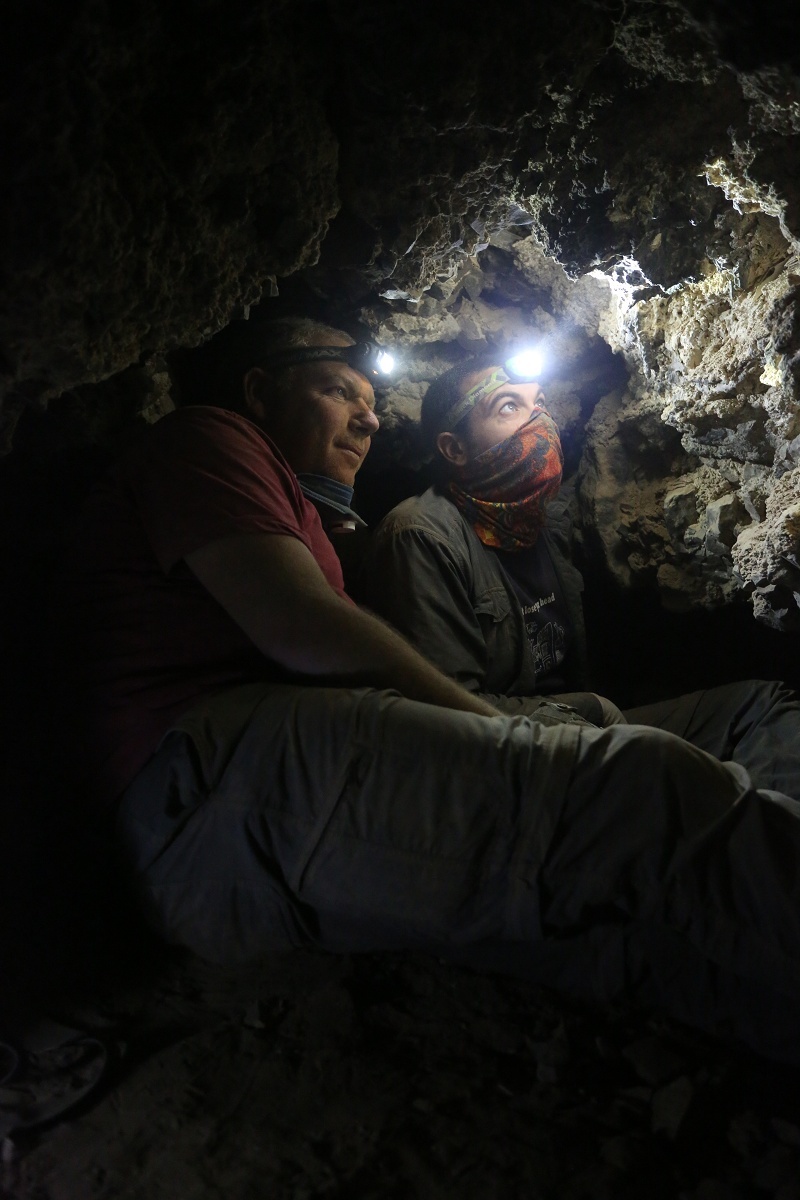
Archaeologists have discovered a cave which they believe once housed the Dead Sea scrolls, famous for containing the earliest copy of some of the Judeo-Christian texts, they announced on February 9.
It was believed until recently that only 11 caves in the Qumran region contained the scrolls. However, the excavation at this 12th cave brought about sufficient evidence that it had once contained Dead Sea scrolls and that those scrolls were looted.

Oren Gutfeld and Ahiad Ovadia survey a cave in the Qumran region.
"Although at the end of the day no scroll was found, and instead we 'only' found a piece of parchment rolled up in a jug that was being processed for writing, the findings indicate beyond any doubt that the cave contained scrolls that were stolen," Dr. Oren Gutfeld, researcher at Hebrew University's Institute of Archaeology, said in a statement. "The findings include the jars in which the scrolls and their covering were hidden, a leather strap for binding the scroll, a cloth that wrapped the scrolls, tendons and pieces of skin connecting fragments, and more."
The excavation was led by the 'Operation Scroll' team, which is comprised of archaeologists from Hebrew University, the Israel Antiquities Authority, the Israel Nature and Parks Authority, and the Civil Administration of Judea and Samaria. A team of students and professors at Liberty University, led by distinguished research professor Randall Price, also assisted in the dig.
This is the first discovery related to the Dead Sea Scrolls made in 60 years.
"I knew the cave had potential," Price said in a Liberty University article. "This is only the beginning of our search for more scrolls. Undoubtedly, they are out there, and we know of some 300 caves in the area. Our team is planning to return to excavate other caves in the near future."
Lamar Cooper, senior professor of Old Testament and archaeology at Criswell College who first participated in excavations in the Qumran region in 2006, told the Baptist Press that such excavations "tells [him] more and more that everything that happened at that place is what the Bible says."
The Dead Sea Scrolls include texts written in Hebrew, Aramaic, and Greek, and the earliest texts were written in the 4th century BC. The documents not only contain some of the earliest texts found in the Bible, but also include secular texts that reveal what life was like in the times of Jesus.


















